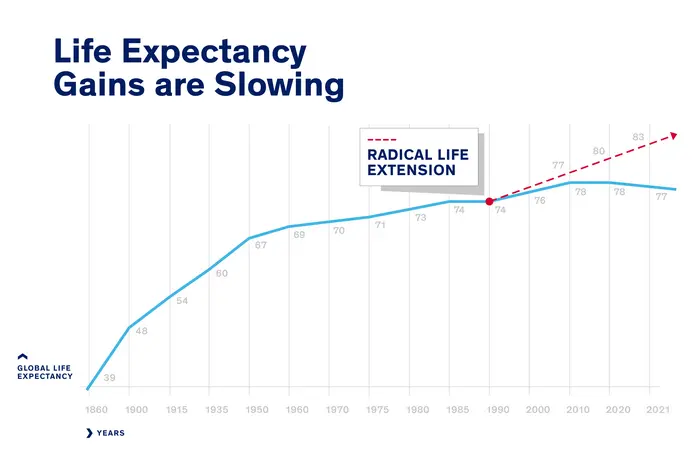Human life expectancy pushed to maximum limit as gains slow down, study finds
There is more immediate potential in improving quality of life at older ages, researchers say
Gains made in human life expectancy in recent decades are slowing down despite frequent breakthroughs in medicine, according to a new study.
Human life expectancy nearly doubled over the 20th century thanks to healthier diets, medical advances and other quality-of-life improvements. But it has risen only six and a half years since 1990, according to the study published in the journal Nature Ageing.
This rate of improvement falls way short of expectations that life expectancy would push beyond 100 for most people born today.
Although more people than ever are getting to 100 and beyond this century, they are “outliers” and will not push “average human life expectancy” higher, the study says.
This suggests that humans could be approaching a biological life expectancy limit.

Researchers now suspect the biggest boosts to longevity have already occurred.
They expect life expectancy gains to slow as more people become exposed to the detrimental effects of ageing. Any further extension of life expectancy by reducing diseases may be harmful as the additional years aren’t healthy years, scientists say.
“Most people alive today at older ages are living on time that was manufactured by medicine,” study co-author Jay Olshansky from the University of Illinois Chicago says.
“But these medical Band-Aids are producing fewer years of life even though they’re occurring at an accelerated pace, implying that the period of rapid increases in life expectancy is now documented to be over.”

In the new study, scientists examined data from eight countries with the highest life expectancy as well as Hong Kong and the US.
The data suggests the natural longevity limit for the human species is “behind us”. “We’ve now proven that modern medicine is yielding incrementally smaller improvements in longevity even though medical advances are occurring at breakneck speed,” Dr Olshansky says.
The findings also push back calculations by insurance and wealth management businesses that increasingly assume most people will live to be 100 in the near future.
“Only a small percentage of the population will live that long in this century,” Dr Olshansky says.
Scientists, however, say there is more immediate potential in improving the quality of life at older ages instead of extending life.
“There is plenty of room for improvement: for reducing risk factors, working to eliminate disparities and encouraging people to adopt healthier lifestyles – all of which can enable people to live longer and healthier,” Dr Olshansky says.
Join our commenting forum
Join thought-provoking conversations, follow other Independent readers and see their replies
Comments
Bookmark popover
Removed from bookmarks